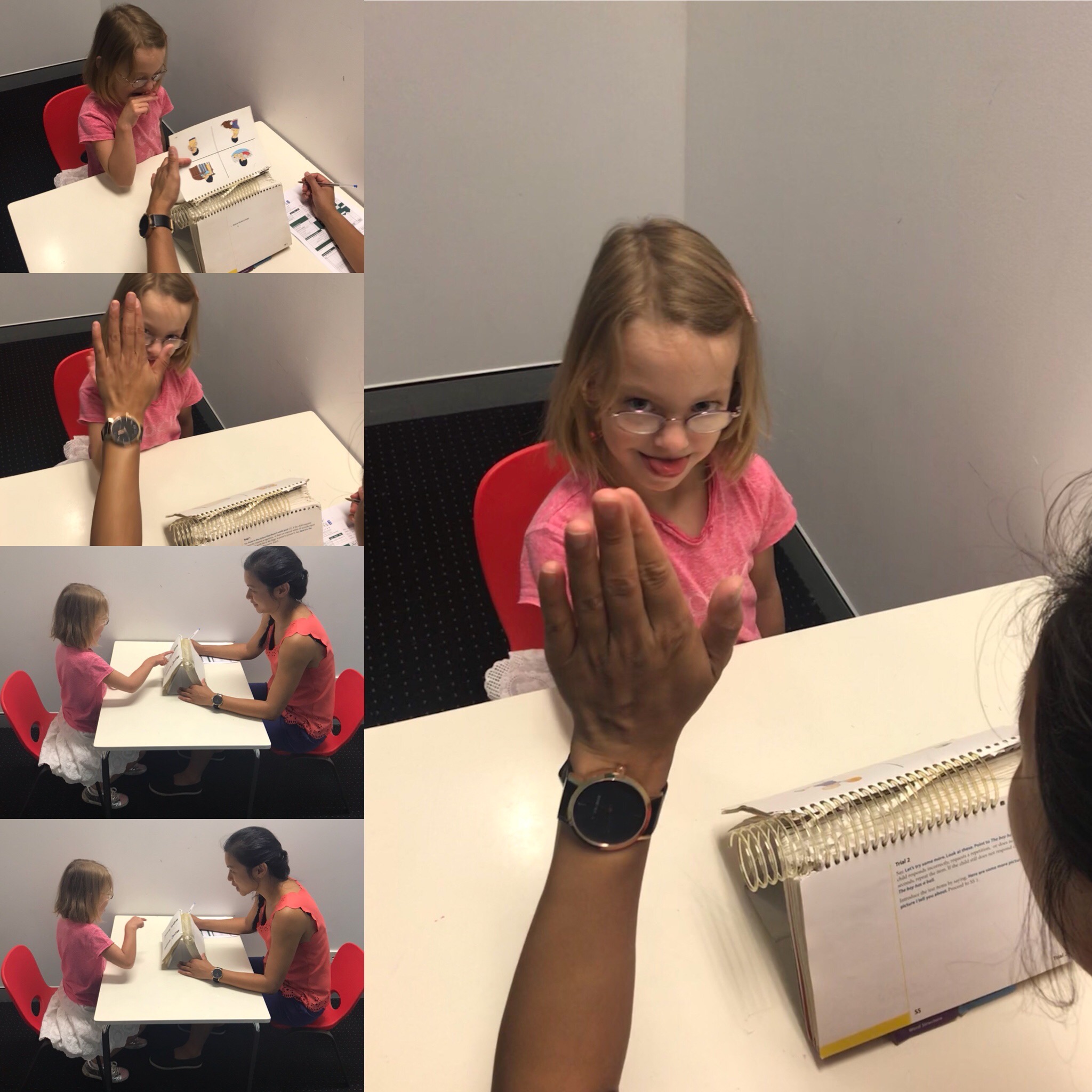
What is Childhood Apraxia of Speech (CAS)?
Childhood Apraxia of Speech (CAS) is a neurological motor speech disorder. Children with CAS have problems saying sounds, syllables, and words. This is not because of muscle weakness or paralysis. The brain has problems planning to move the body parts (e.g., lips, jaw, tongue) needed for speech. The child knows what they want to say, but their brain has difficulty coordinating the muscle movements necessary to say those words.
In other words, the child knows what they want to say, but their brain has trouble making the muscle movements in their jaw, tongue, and lips. As a result, the child can’t say words the way they want to. Children with CAS understand what other people say to them and know what they want to say. They often know exactly what sound they need to say in the word, but somewhere in their brain, the message misfires, and the child can’t make the muscles in their mouth say the sounds correctly. Consequently, CAS is very frustrating for children.
Childhood Apraxia of Speech is often called CAS. However, it can also be called developmental apraxia of speech (DAS), developmental articulatory dyspraxia (DAD), and developmental verbal apraxia (DVD).
How is CAS Different from Other Speech Problems?
Children with a speech delay are developing their speech at a slower rate than expected. They are developing their speech sounds and the underlying speech sound patterns, known as phonological processes, at a slower rate. In contrast, children with CAS develop speech in an atypical way, unlike children with a speech delay. Additionally, CAS requires intensive Speech Pathology for a longer period of time.
What are the Signs of CAS?
Children with CAS present with many speech errors, which can vary between children. Most experts agree that children may exhibit some, but not all, of the following signs:
- Limited Range of Sounds: The child has a limited range of sounds they say correctly.
- Vowel Difficulties: The child struggles to say vowels correctly. Vowel sounds carry a lot of meaning in words, and changes can alter the meaning of words significantly.
- Inconsistent Speech Errors: The speech errors are inconsistent. The child may say the same word in different ways, making it hard for others to understand.
- Reliance on One Sound: The child heavily relies on one sound, using it in many words.
- Disturbed Speech Patterns: The rate of speech, intonation, stress on different syllables, and the rhythm of speech may be disturbed, making the child sound robotic.
- Difficulty with Complex Words: The child makes many mistakes on longer, more complex words.
Does CAS Only Affect Speech?
CAS always affects speech. However, it doesn’t always affect other areas of development. Sometimes, children with CAS may have difficulty with:
- Language
- Feeding
- General Coordination
What Causes CAS?
Currently, the exact cause of CAS is unknown. Research suggests there is a genetic component, as children with CAS have a higher incidence of a family history of speech and language problems. Some children with CAS also have other developmental or medical conditions, such as autism and epilepsy. It is important to note that CAS is not caused by the parents.
How Common is CAS?
There is limited research on the incidence of CAS. Some studies suggest that 2-3 children in every 1,000 have this speech disorder.
What Does My Child Need if They Have CAS?
Children with CAS need Speech Pathology intervention. Research shows they need intensive intervention, with sessions at least twice a week. The program should be individualised for the child, focusing on learning the motor patterns for speech. Children with CAS need a lot of repetition of the speech movements they learn.
Some children have such severe speech issues that they don’t use speech to communicate. These children use augmentative and alternative communication (AAC) programs on iPads and other speech-generating devices. Children with CAS are eligible for funding through the NDIS, which can help families with the cost of seeing a Speech Pathologist at the required intensity.
What Should I Do if My Child Has CAS?
- Contact a Speech Pathologist: Seek out a Speech Pathologist with experience in CAS. Speech Pathologists should be members of Speech Pathology Australia.
- Frequent Sessions: Ensure sessions are more frequent.
- Follow Through at Home: Find a Speech Pathologist who supports you in following through at home. This increases the intensity of intervention.
Watch the video from the Mayo Clinic for more information on CAS.
We’re Here to Support You
At OneOnOne Children’s Therapy, we believe that every child deserves the opportunity to grow and thrive. Our clinics are not just spaces for therapy – they are places where children can discover their strengths, overcome challenges, and reach their full potential. By combining innovative therapy techniques with a stimulating and supportive environment, we offer a holistic approach to pediatric therapy and early intervention that addresses the unique needs of each child we support.
Reach Out for Support
If you’re concerned about your child’s speech development or want to learn more about how Speech Pathology can help your child, OneOnOne Children’s Therapy is here to help. Call our Bondi Junction and Mascot clinics at (02) 8065 7837 or email us. You can book a free 30-minute phone call with us to discuss how we can support your child’s unique journey. Our blogs give you more detail about Speech Pathology.
We are a dedicated team of Speech Pathologists, Occupational Therapists, Certified ESDM Therapists, and Psychologists, serving families in Bondi Junction and Mascot, Sydney’s Eastern suburbs. Our clinics are tailored to provide exceptional intervention for children with autism, developmental delays, disabilities, and learning difficulties, ensuring they receive the best possible care and support.
